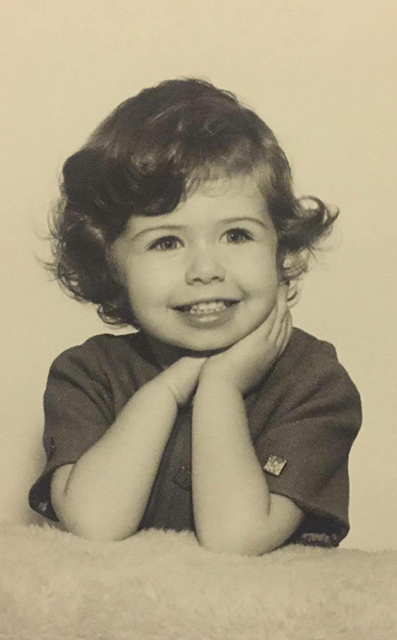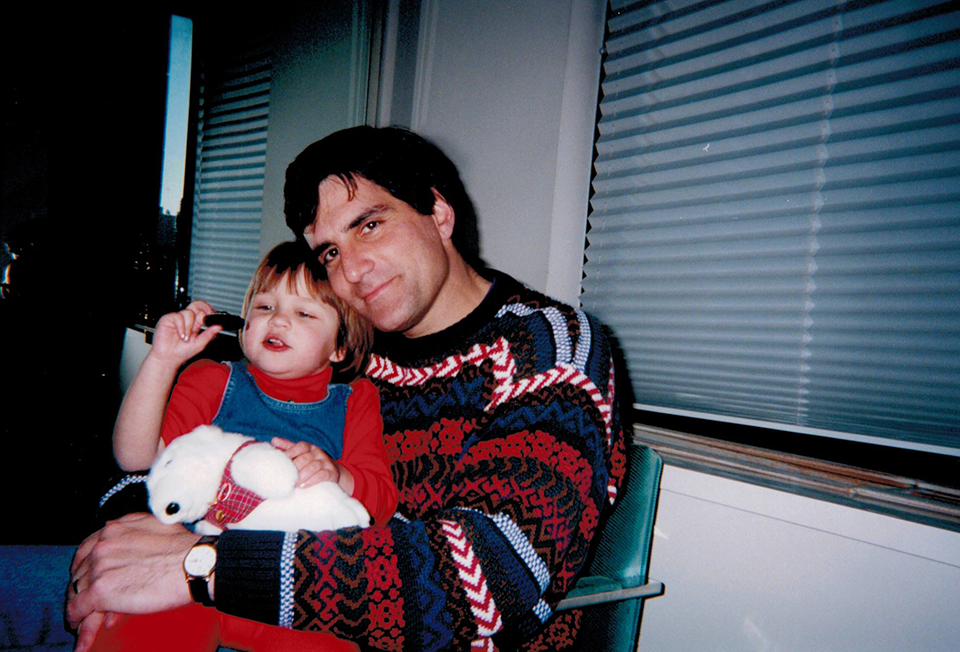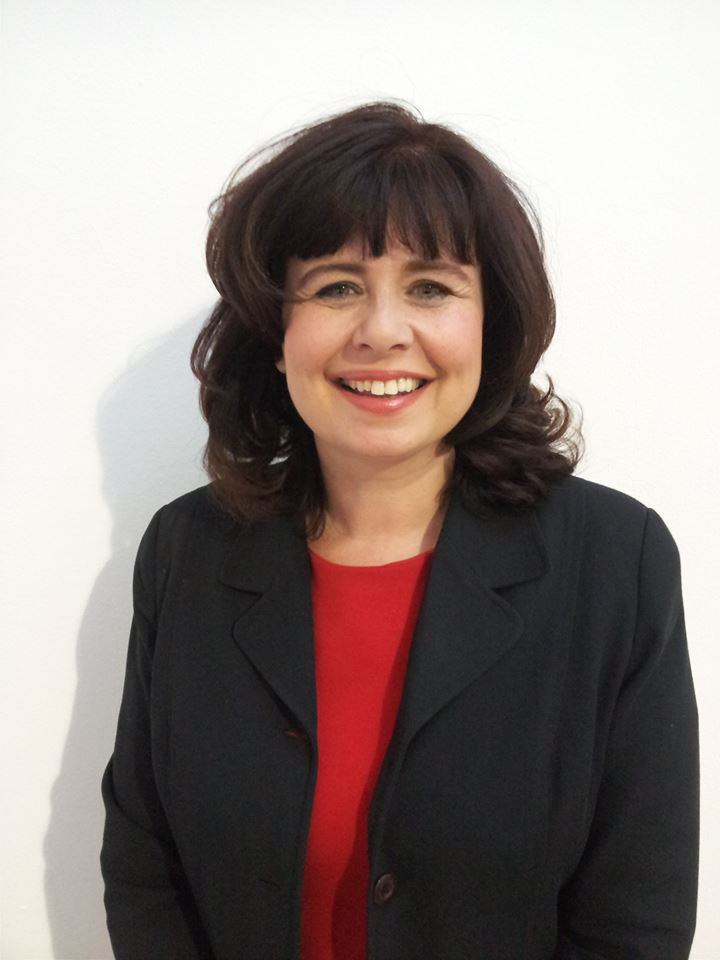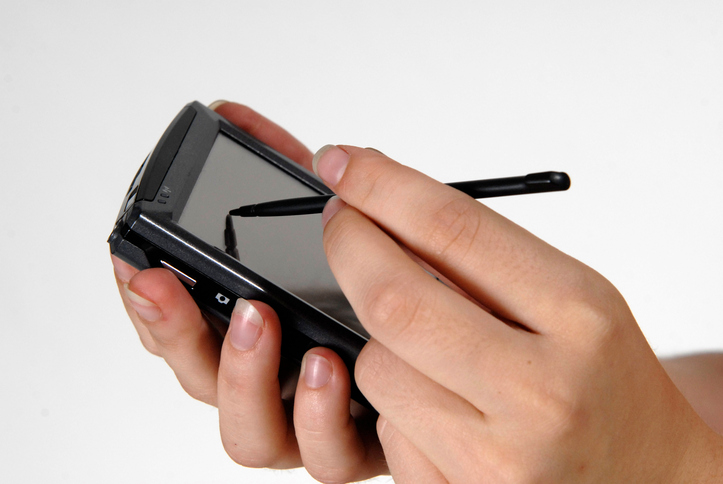ADHD is being missed in girls, suggest new guidelines, and it’s been found to lead to anxiety and depression in later life. We spoke to two women that live with the condition and a leading expert on the help that’s out there
When we think of ADHD (Attention Deficit Hyperactive Disorder), the first thing that springs to mind is an image of hyperactive young boys making trouble in a school classroom. However, ADHD is being missed in girls because they tend not to behave badly as boys, according to new NHS guidelines. The hyperactive disorder manifests itself in different ways in girls, as opposed to the ‘classic’ disorder symptoms of restlessness and impulsive or disruptive behaviour. Instead, The National Institute of Health and Care Excellence (NICE) said girls are having difficulty concentrating, are forgetful and have poor organisational skills – which are more likely to be overlooked.
ADHD isn’t a disorder that is confined to disruptive young boys or successful men.
According to medical guidelines, ADHD affects five percent of school-aged children and the male to female ratio in diagnosed ADHD prevalence is at least four to one. But the reality of ADHD is more complex. School-aged children grow up and turn into adults, and while they sometimes ease, symptoms don’t suddenly disappear.
That’s not to say that those with ADHD aren’t successful – famous celebrities such as Jamie Oliver, Jim Carey, Richard Branson and Justin Timberlake all have ADHD. But they also have another thing in common – their gender, and the truth is, ADHD isn’t a disorder that is confined to disruptive young boys or successful men. It is a lifelong condition that affects both men and women with the latter commonly going undiagnosed.
When businesswoman Sandra Scott was young she was described as a ‘lively child’. She’d been known to cut off her cat’s whiskers, slam tweezers into the wall and in secondary school, she spent fifteen weeks in detention for lateness. She wasn’t malicious or badly behaved – she was simply displaying symptoms of the ADHD that she wouldn’t figure out she had until she was in her late forties.

MORE: 8 easy ways to soothe stress
What is ADHD?
Sandra Scott, now 49 has talked about her difficulty regulating her emotions when she was younger, ‘if I got upset, I couldn’t stop myself. I knew I’d be sobbing for a long time and I used to take things really badly.’ This is a typical symptom of ADHD, leading people with the condition to have extreme emotions, from sadness to overexcitement. And while she has learned to manage and live with her symptoms now, it wasn’t always that easy. ‘I used to do quite poorly with exams and stress and stuff and basically in any situation where I might need to focus, I would often zone out.’

ADHD is a group of behavioural symptoms that include inattentiveness, hyperactivity and impulsivity. We all get a bit fidgety and restless at times. But for people with ADHD, these symptoms can be so extreme that they can have a disruptive and often disabling impact on day-to-day life. Dr Susan Young is a neuropsychologist working at Imperial College London who specialises in ADHD in women. Sharing her knowledge of the condition she explained that ADHD is a chronic longstanding problem that continues well into adulthood. ‘As you get older, the hyperactivity presents itself differently. You don’t have adults running and rolling about on the floor when you’re assessing them but they will have some inner form of restlessness they complain about.’
You don’t have adults running and rolling about on the floor when you’re assessing them but they will have some inner form of restlessness they complain about.
According to NHS guidelines, symptoms of ADHD include having a short attention span, being easily distracted and being forgetful. People that have the condition are often unable to stick to tedious tasks, stay organised and they can find it difficult to concentrate. This can result in people with ADHD coming across as excessively chatty and they often fidget and move around a lot. ADHD can affect social interactions as it makes people act without thinking and they’re more likely to interrupt conversations and say exactly what they think.

ADHD, if unmanaged can potentially have lasting effects for adults including anxiety, depression, low self-esteem, ruined relationships, even self-harm and criminal behaviour, ‘if people aren’t diagnosed early, the outcome can be pretty bleak in terms of their ability to form functional relationships with those around them, to remain in stable employment, to stay out of prison,’ explains Dr Young. She adds that using clinical diagnoses, researchers have found that 26 percent of people in prisons across the world have ADHD.
26 percent of people in prisons across the world have ADHD.
MORE: CROHN’S DISEASE: What you need to know
Why are women with ADHD underdiagnosed?
‘I think it reflects a referral bias’, said Dr Young. She explained that boys will display hyperactive outbursts and be difficult to manage when they’re young. They are the typical image of a child with ADHD whereas young girls often present their symptoms differently, ‘they might present as more daydreamy and in a world of their own, moving in on themselves. So their ADHD might not be immediately apparent or might not be perceived as impairing but it can be. Certainly, by adolescence, these girls grow up and often have huge disturbances to interpersonal relationships.’
historically boys can get away with saying a lot of things that girls couldn’t
Business woman Scott not only has the condition herself but has also worked as a teacher for children with ADHD. ‘When you’ve got little kids on a carpet, the little boy will be the one who’s jumping, he can’t sit down, he suddenly runs out of the room. Whereas a girl with ADHD is the one who is last out of the room, who walks into things or who forgets stuff.’

She adds that there is a social influence that also has a big impact on the underdiagnosis of girls, especially reflected in attitudes when she was growing up. ‘I think historically boys can get away with saying a lot of things that girls couldn’t, certainly when I was young – I went to school at a time when the girls went and did the needlework and the boys did woodwork.’
Traditionally young girls are encouraged to suppress their boisterousness and this can have a knock-on effect for children with ADHD meaning that women are conditioned to suppress symptoms and are often left undiagnosed.
What the diagnosis has really done is let me forgive myself
While not everyone necessarily needs to be medicated, a diagnosis can have a huge impact for women. ‘What the diagnosis has really done is let me forgive myself,’ Scott revealed. She explained how she used to berate herself for losing things and being disorganised. ‘I used to get really upset, frustrated and miserable about stuff. And I don’t feel that way now – I’ve got loads of strengths, I’m proud of them and I’ve learned to play to them now.’
Getting a diagnosis
Scott was not diagnosed until she was 46 years old. Working as a teacher in a school for children with special needs, the children with ADHD would tell her that she was just like them. When she eventually went for her assessment she explained to the consultant that she was struggling to do her Masters because she kept getting bored. He told her ‘Don’t you understand? If you’d have been medicated when you were younger you’d have a PhD by now.’ Unsurprisingly this was a hard thing for her to hear.
People that have ADHD are often prescribed a combination of Cognitive Behavioural Therapy (CBT) and medication to help control their behaviour. When we do something we enjoy a chemical called dopamine is released in our brain. Scientists believe that people with ADHD don’t get the same hit of dopamine as the rest of us, which is why they’re constantly seeking the next thing to occupy their minds. Medicines such as Adderall and Ritalin are used to help this by giving people with ADHD the reward chemical that will enable them to focus.
When I take my medication I do feel like a genius… but I’d rather be me
As Sandra Scott has lived most of her life high-functioning and despite her ADHD has gone on to be incredibly successful both academically and in her work, she rarely takes her medication. ‘When I take my medication I do feel like a genius… but I’d rather be me.’ She does take it if she knows she has to go into a long, boring meeting where her attention will wander.

On the other hand, 23-year-old mental health worker, Jamie Tambor is American. She was diagnosed at a time when doctors in the US were prescription-happy when it came to the condition. Although many young girls with ADHD slip through the net, due to her hyperactive and impulsive outbursts, at the age of six, Tambor was spotted by teachers and prescribed stimulants by doctors.
‘I started taking medication when I was six years old and it was a real problem because I couldn’t even swallow pills’. Her parents eventually had to sprinkle the capsules into her apple sauce to get her to take it and to this day she can’t stomach the taste of apple sauce. When she was assessed for ADHD the consultant also picked up Tambor’s dad as having the condition. In fact, this is the most common way for adults to be diagnosed.

These days Tambor has mixed feelings about her medicine. She explained that particularly when she was younger, Adderall could make it hard for her to socialise because all she wanted to do when she was medicated was sit there and focus. ‘This created an idea in my mind that when I’m on my medicine I’m not fun, that I’m this lame person. And I think that can really affect my anxiety around people when I’m taking my medicine.’ Even now she’s torn between whether or not to stay medicated when spending time with friends, ‘my friends tell me they love me when I don’t take my medicine.’ All of the women I spoke to said that thanks to their vivacious characters, people with ADHD are a lot of fun to be around.
When I go without my medicine I’m very intrusive so I’ll find myself interrupting conversations.
But living life unmedicated can have a big impact on social interactions too. ‘When I go without my medicine I’m very intrusive so I’ll find myself interrupting conversations. I can’t regulate what I say so I’ll just say the first thing that jumps into my head, it’s a lot harder for me to control my thoughts so if I get upset it’s not always that easy to take a step back and think about whether my feelings are rational,’ explained Tambor.
Living with ADHD
While both Scott and Tambor are accomplished women, Tambor achieving a graduate degree and going on to work in mental health and Scott being the owner of both a language learning company and a senior care home, they haven’t always had an easy ride. ‘I think that having a diagnosis of ADHD really impacts how you see yourself. At school, I immediately saw myself at a disadvantage and not as adequate… I thought I’d never be one of those people who are really smart. It wasn’t until I went to university that I was like ‘wow, I can actually do this’,’ Tambor explained. When she was young she couldn’t sit still and adds that she would have really extreme reactions to things.
If I got upset, I couldn’t stop myself. I knew I’d be sobbing for a long time and I used to take things really badly.
Dr Young says that people with ADHD may have difficulty with relationships because their ADHD can cause them to be volatile, irritable and creates problems for them in controlling their emotions and behaviour. A person with ADHD is more likely to ‘get fired from work a lot, or walk out of jobs and say ‘f**k it, I’m not going to have your job anymore’.
Scott described how when she was younger would lose her temper easily and regret it later and Tambor found that a summer without her medication resulted in the most arguments she’d ever had with her boyfriend.

For Tambor, living life part medicated and part unmedicated has also raised some questions for her about her identity. ‘Who am I?’ Tambor asked, ‘I’m a very different person on my medication- my personality is completely opposite.’ Scott seems to agree that in some ways having ADHD can lead you to question yourself, ‘I was very outwardly confident,’ she said, speaking of her childhood, ‘but what comes out isn’t necessarily what you feel inside.’
ADHD is an explanation, not an excuse
But both women have learned to manage their condition. Scott found that working as an air hostess taught her skills that helped her manage her ADHD. She learned to check her roster regularly so that she wouldn’t be late and she had to bite her tongue sometimes with rude passengers. ‘I sort of very much have the attitude that yeah it’s difficult, it’s really challenging but come on, we can do it.’ She repeated the ADHD Foundation‘s motto, ‘ADHD is an explanation, not an excuse.’ These days she says that she feels incredibly emotionally resilient – a real achievement as this is often something that women with ADHD struggle with.
But it’s not all bad
Many people with ADHD go on to be incredibly successful. ‘People with ADHD are life’s true entrepreneurs’ says Dr Young. Many people with ADHD are high functioning and she explains that sometimes people with the condition strike lucky and find something that really works for them.
Scott feels that without ADHD her life would be very different – but not necessarily for the worse. ‘I’ve always been quite successful because I love work and I love being busy… I went to Liverpool University in later life and I was the first mature student to graduate in three languages simultaneously.’ Her ADHD has allowed her to channel herself into her passion for languages.

And Tambor explained that she’s happy she has the condition. ‘I love having ADHD. I think that maybe one of my favourite parts of my personality is my spontaneity.’ She adds that her ADHD has allowed her to progress in certain areas. ‘Because I’m so spontaneous I actually act on the things I want to do, whereas I think other people sometimes get scared to do the things they want to and they just sit on the idea forever.’
When I started going to the gym last year I realised it really helps ease the symptoms of my ADHD and medication
While most of the time people with ADHD struggle to focus their attentions, the condition can also cause people to be hyper-attentive when they find something they’re truly interested in. Tambor revealed she has the ability to hyper-focus. ‘When I have a passion for something I will follow it wholeheartedly to the point where it’s an obsession.’ This has helped her progress in the field of psychology but also through her health and fitness. ‘When I started going to the gym last year I realised it really helps ease the symptoms of my ADHD and medication. I ended up going almost every day, I lost 20 Ibs. I started eating really healthy and I just feel so much better now. My body feels so much better and I think ADHD really helped me form that kind of drive.’

Learning to cope with ADHD
Tambor, Scott and Dr Young all agree that learning to understand your condition is paramount to dealing with it and playing it to your advantage. ‘I think psychoeducation has been hugely important for me. One of the main reasons I went to study psychology was so that I could understand myself – I think that really helps me because when I’m having a hard time controlling my emotions I know the reason why,’ explained Tambor.
without direct debits I’d find things very difficult because I’d forget things or mislay an invoice
Dr Young agrees with this and suggests that if anyone thinks they might have ADHD and is struggling with their symptoms to ‘get on the internet and do a bit of research and make contact with a charity like the ADHD Foundation for guidance.’ Although Scott warns that you should be mindful of what you read and do avoid websites that claim ADHD is all ‘doom and gloom’.

‘I have to put strategies in place,’ said Scott ‘without direct debits I’d find things very difficult because I’d forget things or mislay an invoice.’ Over time she has developed a number of ways to help her manage. She makes notes on everything that happens in her day so that she doesn’t forget anything. ‘I check my appointments on my phone about twenty times because I always get confused when it comes to the time.’ Electronic diaries and phone apps also help a lot and Scott suggests that people with ADHD access apps such as ADHD Angel to help them stay organised.
Having someone that believes in you can also make a huge difference for someone with ADHD, ‘I have a mum that believes in me,’ said Scott ‘and actually it’s statistically proven that successful people with ADHD often had at least one person that believed in them right through.’
identifying ADHD and getting the right interventions and treatments can help people to turn their lives around
For those with ADHD, the future doesn’t have to be bleak. Both Tambor and Scott believe that their condition lies at the heart of who they are and has helped them to achieve in their careers.
If you think you might have ADHD and are struggling with the condition Dr Young advises you seek help, ‘the good thing about ADHD is that unlike autism spectrum disorder it is a treatable condition.’ With the right help, anything is possible. ‘It’s never too late. Even if you go into prisons with people who have quite a long history of violent offences, identifying ADHD and getting the right interventions and treatments can help people to turn their lives around.’
It’s important, especially for women to come forward for diagnosis so that they can get the help that they need. Because so few women are diagnosed, Dr Young warns that ‘we’re only starting to begin to understand the unfortunate ramifications that ADHD has for women for life.’
If you think you have ADHD and are your symptoms are impairing your quality of life head to the ADHD Foundation for advice.
Read more
What is lupus? Three women describe living with a disease that can attack the entire body
Why are young fit people dying of cardiac arrest?
Your chance to win
Like this article? Sign up to our newsletter to get more articles like this delivered straight to your inbox.






















































